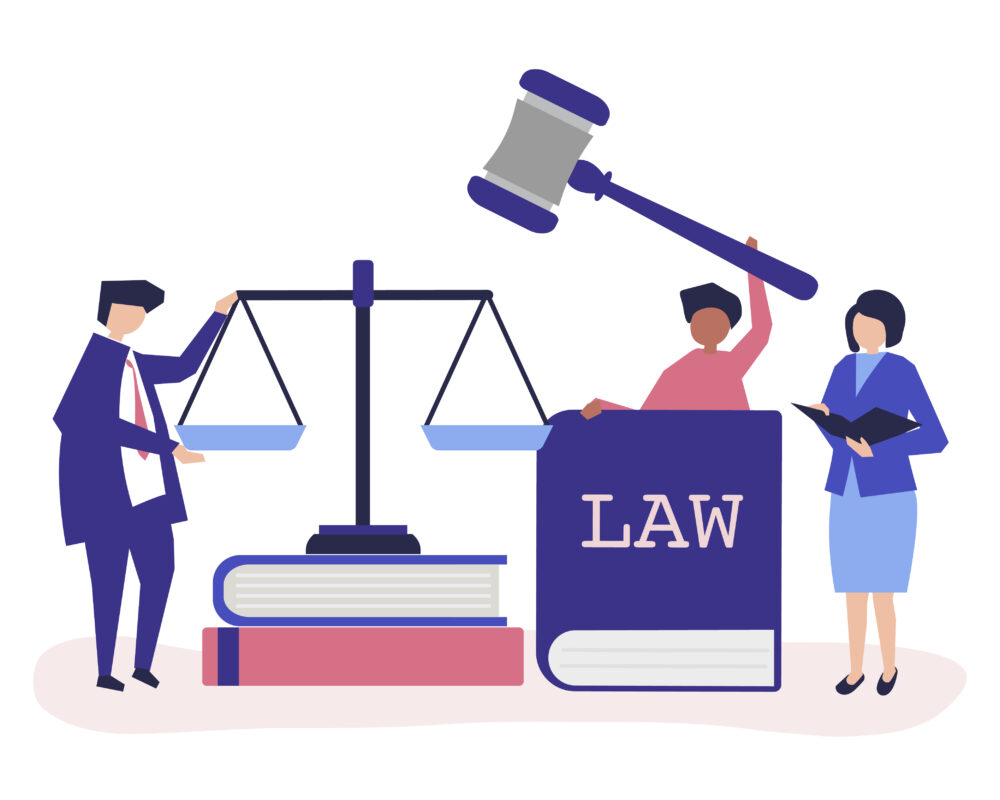After the Court issues a judgment or decision (collectively referred to as “judgment“) to resolve the case, the next step that the winning party is interested in is how the legally effective judgment will be enforced most effectively. Reality has shown that the judgment enforcement process in Vietnam often faces many challenges and is time-consuming. Some reasons can include the complicated legal framework, the judgment debtor taking advantage of loopholes in the law to obstruct the judgment enforcement process, or the fact that the competent authorities may be uncertain when executing complex cases. Organisations and individuals who won lawsuits need to understand how to enforce a Court’s judgment in Vietnam. Therefore, the article below will examine the specific steps a judgment creditor needs to know from when requesting judgment enforcement until the judgment enforcement is completed according to Vietnam’s civil procedural law.
Step 1. The judgment creditor sends a request for judgment enforcement to the competent judgment enforcement agency (“JEA”).
In principle, the level (district or provincial) and territorial jurisdiction of the People’s Court who issued the judgment and the JEA competent to enforce such judgment are the same [1]. For example: JEA of Ho Chi Minh City has the authority to execute the first-instance judgments issued by the People’s Court of Ho Chi Minh city.
The judgment creditor must send the request for enforcement to the JEA within the legal time limit, which is 05 years from the date the court judgment becomes legally effective. If the time limit for the judgment debtor to perform their obligation(s) is specified in the judgment, the 5-year period will be calculated from the date the obligation becomes due [2].
Regarding how to submit the request, the judgment creditor can make a request on their own or authorise another person to do so by submitting the application directly or sending it by post to the competent JEA. With complex and high-value cases, the judgment creditor often authorises a lawyer to represent them and participate in the entire enforcement process.
Step 2. JEA issues the judgment enforcement decision.
If the enforcement request is not refused, the head of the JEA will issue a decision on enforcement within 05 working days from receiving the request. Note that the request for enforcement can be refused in some cases, such as when the content of the request is not related to the judgment’s content or the time limit for the enforcement request has expired [3].
Step 3. The judgment debtor voluntarily executes the judgment.
The voluntary enforcement period is 10 days from the date the judgment debtor receives the judgment or is duly notified of the judgment [4].
Step 4. The enforcement officer verifies the enforcement conditions if within 10 days of the expiration of the voluntary enforcement period, the judgment debtor does not voluntarily comply [5].
Verifying judgment conditions means verifying and collecting specific information about the assets, income, and other financial conditions of the judgment debtor.
To quickly have the verification results of the enforcement conditions, the judgment creditor can by themselves or authorise others to verify the enforcement conditions and provide the collected information to the JEA for their considerations.
Step 5. JEA issues a decision to coerce judgment enforcement.
If it is verified that the judgment debtor has the conditions to execute the judgment at Step 4, JEA will carry out compulsory enforcement with the judgment debtor [6]. Currently, the law stipulates that there are six forms of compulsory enforcement as follows [7]:
- Deduction of money on accounts; recovery and handling of money and valuable papers of judgment debtors.
- Subtraction of incomes of judgment debtors.
- Distraint and handling of judgment debtors’ assets, including those held by third parties.
- Exploitation of assets of judgment debtors.
- Forcible transfer of objects, property rights, and papers.
- Forcible performance or non-performance of certain actions by judgment debtors.
Step 6. JEA notifies the amount of civil enforcement fees that the judgment creditor must pay at least 15 days before handing over the properties to the judgment creditor [8].
If JEA was able to collect money and properties from the compulsory enforcement at Step 5, at least 15 days before handing over the money and properties to the judgment creditor, the JEA must notify the creditor of the enforcement fees they must pay. Currently, the enforcement fee is calculated based on the actual amount of money and values of properties the creditor receives [9]. For example:
If the amount of money or properties received is from over 5,000,000,000 VND to 7,000,000,000 VND, the civil judgment enforcement fee will be 150,000,000 VND plus 2% of the amount of money or properties received exceeding 5,000,000,000 VND.
…
If t the amount of money or properties received is over 15,000,000,000 VND, the civil judgment enforcement fee will be 245,000,000 VND plus 0.01% of the amount of money or properties received exceeding 15,000,000,000 VND.
When more than one person is eligible to receive a specific property or jointly receive a sum but only one person or some persons submitted the enforcement requests and the Enforcement officer already handed over the sum and properties to the requestors to manage, such requestor(s) must pay the civil enforcement fees based on the total value of money and properties received.
Step 7. The JEA pays money for or hands over the property(ies) to the judgment creditor.
Within 10 days from when the money and properties are collected, the JEA is responsible for paying such money for and handing over the properties to the judgment creditor.
It should be noted that the judgment creditor may not receive the full value of money and assets obtained from the judgment enforcement as the money and assets obtained from the enforcement will have to be divided in the following order as required by the law [10].
- First: Payment of the judgment enforcement costs and the amount must be deducted for the judgment debtor according to Clause 5, Article 115 of the Law on Civil Judgment (applicable for cases of forced handover of a house being the only residence of the judgment debtor and after paying off all debt obligations, the judgment debtor doesn’t have enough money to rent a house or create a new residence place).
- Second: Payment of alimony, salary, labour wages, severance pay, job loss allowance, loss of working capacity allowance, and compensation for loss of life, health, and mental damage.
- Third: Payment of court fees and charges. The amount of court fees and charges the judgment debtor must pay to the Court is specified in the Court’s judgment.
- Lastly: Payment of other amounts according to the judgment or decision.
Regarding the form of payment and return of executed assets, the judgment creditor can directly receive money at the JEA’s headquarters or request the JEA to transfer the money by post or bank transfer.
The above is a preliminary summary of how to implement a valid court judgment or decision in Vietnam. In practice, the judgment enforcement by the JEA can vastly vary from case to case, depending on the specific objective circumstances of each case. Therefore, organisations and individuals, who are beneficiaries of the judgment and are considering submitting a request for judgment enforcement to the competent JEA, might consider consulting a lawyer experienced in civil judgment enforcement in Vietnam for timely advice.
[1] Article 35 of the Law On Civil Judgment Enforcement 2008, revised and supplemented in 2014 (“Law On CJE”)
[2] Article 30 of the Law On CJE
[3] Article 36 of the Law On CJE
[4] Article 45 of the Law On CJE
[5] Article 44 of the Law On CJE
[6] Article 46 of the Law On CJE
[7] Article 71 of the Law On CJE
[8] Clause 4 Article 5 of Circular No. 216/2016/TT-BTC of the Ministry of Finance on collection, payment, management, and utilisation of civil judgment enforcement fees (“Circular 216/2016”)
[9] Clause 1 Article 4 of Circular 216/2016
[10] Article 47 of the Law On CJE
This article is for general information purposes only and is not intended to provide any legal advice for any particular case. The legal provisions referenced in the content are in effect at the time of publication but may have expired at the time you read the content. We therefore advise that you always consult a professional consultant before applying any content.
For issues related to the content or intellectual property rights of the article, please email cs@apolatlegal.vn.
Apolat Legal is a law firm in Vietnam with experience and capacity to provide consulting services related to Dispute Resolution and contact our team of lawyers in Vietnam via email info@apolatlegal.com.





































